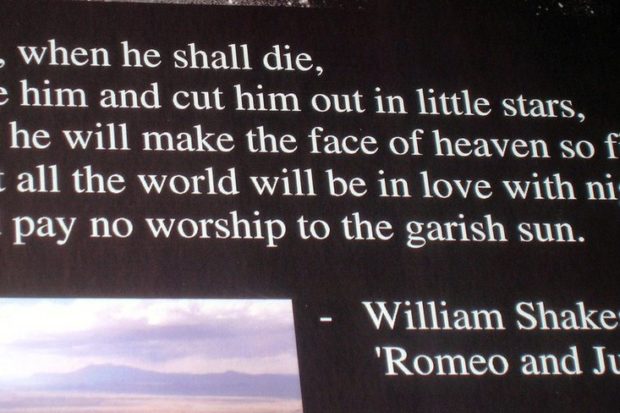
By Boston Woodard
When I think of death as a prisoner, I sometimes wonder if I will make it back out into the free world for my demise or if I will take my last breath while still incarcerated.
A range of feelings abound regarding convicted felons dying in prison. Some believe it serves a prisoner right to die while in prison; others exude compassion that all people, including prisoners, should be treated as human beings during the remaining days of their lives.
My first experience with a hospice unit was about 15 years ago while I was at the California Medical Facility (CMF) in Vacaville. I was transferred to the CMF for several surgeries on both my hands. While there, I learned an old friend, G.K. “Scooter,” who I served time with a few years at Folsom State Prison, was housed in the CMF’s Hospice Care Unit under the auspices of Pastoral Care Services (PCS) Director/Chaplain Keith Knauf.
It had been many years since I had seen Scooter. After being cleared to visit Scooter in his hospice unit room, I was shown the way into one of several small esthetic rooms with two hospital beds. A curtain was drawn around one man sleeping attached to a breathing device. In the other bed was a thin older man staring at me through half-closed eyes as I walked in the room. It was my old friend Scooter.
A smile worked its way up Scooter’s cheeks as I sat in a small blanket-covered chair beside his slightly raised hospital bed. Although it had been nearly 20 years since we had seen each other, memories of days together in Folsom came rushing back. Scooter was visibly weak but spoke to me in incomplete sentences. He was drifting in and out of consciousness, at times uttering incoherently in between nodding off from the huge amount of morphine given to him for pain. Scooter was a terminal cancer patient.
After two weeks and six or seven visits with him, he no longer knew who I was. My last three visits with him were spent talking to him about the “old days.” One day, as I arrived, I was informed that Scooter passed away. Scooter’s death taught me a large lesson in humility. After years of existing in a tumultuous milieu such as a prison, there comes a time when everything slows down to a crawl. You begin to see people and things around you differently and understand that people really do care.
Hailing from Alameda County, Darren Sewell, serving a 25 years to life sentence, has been incarcerated for 30 years. Sewell has been a hospice volunteer for 13 years. He has been working nine years in the prison’s “Blind Project” at the CMF with the Volunteers of Vacaville who record books and read for the blind around the country.
Sewell said one of the poignant moments as a hospice volunteer was when one of the hospice patients suffering from a brain tumor “asked me to hold his hand and to just sit and talk to him.” Sewell said, “It’s moments like this that makes all the work we do worthwhile.”
Adan Murillo from Orange County is serving a 10-year sentence and has been working with the PCS for two years. When asked how he got involved, Murillo said, “Sometime ago, I became sick with Valley Fever. My illness showed me the vulnerability of life and how important it is…Everyone has a story to tell,” said Murillo. “I want that ailing individual to know that they are important and that what they have to say is important.”
Hospice nurse Evelyn Eikeland has worked behind prison walls since 1996. For more than three decades, she has cared for senior citizens and veterans in need. “A lot of guys have come here and died,” said Eikeland. Eikeland recalls one elderly inmate slipping and falling in the shower. His condition worsened. “We carried him, cleaned him and just before he died, he looked into my eyes and said ‘thank you.’”
According to Chaplain Knauf, “Our PCS and volunteer workers assume many duties during their visits into the hospice unit. Depending on the needs of the individual patient, it is determined what is best for the patient beforehand.” An example of a special need is difficulty breathing called dyspnea. Cancer and chronic obstructed pulmonary disease (COPD) are two of the leading cause of dyspnea.
Knauf notes that the CMF’s Hospice Care Unit was the first state prison hospice program in the country. In the mid-1980s, the AIDS epidemic ignited the proposal for a hospice unit at the CMF due to the many deaths. “The initial thought by some doctors 30 years ago was that many deaths were caused by pneumonia,” explained Knauf. “Back then, doctors would call pneumonia ‘The Old Man’s Friend’ because when left untreated, the patient would fall into unconsciousness slipping peacefully away.” However, more than 500 men have died of AIDS while at the CMF since the mid-1980s.
Since the Hospice Care Unit at the CMF started, the men in their care are never alone. Because of the devoted efforts of Chaplain Knauf and his staff of medical and prisoner workers, those men in the hospice and their families can be assured that passing with dignity will be an act of unquestionable love and compassion at the CMF.
*****
Boston Woodard is a prisoner and author of Inside the Broken California Prison System (www. amazon.com). He is a freelance writer and has been a contributor to the Community Alliance since 2005. Boston has coauthored a new book PRISON: The Ins and Outs (to be published soon) with longtime prisoner advocate and journalist Maria Telesco.
